Iran to install over 6,000 new centrifuges for uranium enrichment: IAEA
Tehran holds talks with European powers in Geneva over its nuclear programme, but its future remains uncertain
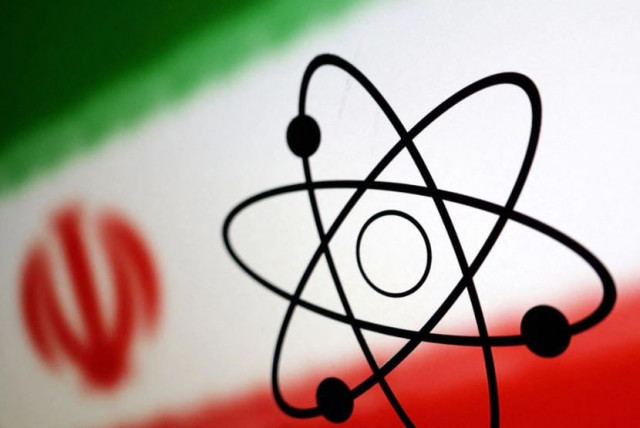
Iran has informed the International Atomic Energy Agency (IAEA) that it intends to install more than 6,000 new centrifuges to enrich uranium, the United Nations nuclear watchdog has confirmed. This announcement is the latest development in Iran’s ongoing nuclear programme, which has been a point of tension in international diplomacy.
The report from the IAEA coincides with talks between Iran and Britain, France, and Germany, which took place in Geneva on Friday. The two sides have agreed to continue diplomatic dialogue on the matter after the discussions. The meeting was held just two months before US President-elect Donald Trump’s return to the White House, a change in leadership that may have significant implications for US-Iran relations.
New centrifuges and increased enrichment capacity
The IAEA’s confidential report revealed that Iran not only plans to install 6,000 new centrifuges but also intends to bring additional centrifuges already in place online. These plans come after a censure by the IAEA’s 35-nation Board of Governors, passed last week at the request of Britain, France, Germany, and the United States.
In the report, the IAEA outlined Iran’s intention to install 18 additional cascades of IR-4 centrifuges at its Natanz facility, with each cascade containing 166 machines. These machines are capable of enriching uranium more quickly, raising concerns over the potential for accelerated nuclear proliferation.
The installation of more centrifuges comes despite Iran previously agreeing to cap its stock of highly enriched uranium to a purity level of 60 percent, which is well below the 90 percent threshold needed to produce weapons-grade material. Nevertheless, the move to increase enrichment capacity has raised alarm among critics, particularly regarding the risk of further destabilising the region and intensifying the nuclear arms race.
Diplomatic talks and continued engagement
The Geneva talks were significant not only for their focus on Iran’s nuclear programme but also for the broader geopolitical context in which they took place. Majid Takht-Ravanchi, deputy to Iran’s Foreign Minister Abbas Araghchi, represented Tehran in the discussions. Kazem Gharibabadi, Iran’s deputy foreign minister for legal and international affairs, stated that both sides agreed to continue diplomatic dialogue in the near future. The European countries, too, affirmed their commitment to ongoing political dialogue, with statements reflecting a shared intention to avoid further escalation.
“We are firmly committed to pursuing the interests of our people, and our preference is the path of dialogue and engagement,” Gharibabadi wrote on the social media platform X (formerly Twitter), following the talks. He noted that discussions had focused on Iran’s nuclear programme and the lifting of sanctions.
On Thursday, the Iranian delegation also met with Enrique Mora, the deputy secretary-general of the European Union’s foreign affairs division. Mora later described the meeting as a "frank exchange" on several key issues, including Iran’s military support to Russia, the nuclear dispute, regional tensions, and human rights.
Iran-EU ensions and criticism of western policies
During the talks, Gharibabadi expressed frustration with the European Union, accusing the bloc of "self-centred and irresponsible behaviour" on a range of issues, including the ongoing Ukraine conflict and Iran’s nuclear ambitions. He further criticised the EU for its "complicit behaviour" in the Gaza conflict, claiming that the EU had lost its moral authority to speak on human rights matters.
Meanwhile, Israeli Prime Minister Benjamin Netanyahu vowed that Israel would do "everything" in its power to prevent Iran from acquiring a nuclear weapon. Netanyahu's comments followed warnings from Iranian officials, including Araghchi, who said that Iran could resume its development of nuclear weapons if Western sanctions are reimposed.
The broader context
The latest developments in Iran’s nuclear programme come at a time of heightened international concern about the country's growing nuclear capabilities. While the US and European powers have been working to negotiate a return to the 2015 Iran nuclear deal, there are increasing fears that Iran's expanding enrichment capacity could derail efforts at diplomacy and lead to further instability in the Middle East.
With the election of Donald Trump as US president again on the horizon, it remains unclear how the US will engage with Iran on the nuclear issue. During his first term, Trump pursued a policy of "maximum pressure," which saw the US unilaterally withdraw from the 2015 nuclear deal and impose harsh sanctions on Tehran. In response, Iran significantly increased its nuclear enrichment activities, leading to a further deterioration in relations between the two countries.
As the Geneva talks conclude, the future of Iran’s nuclear programme remains uncertain, with ongoing diplomatic negotiations and the spectre of potential escalation hanging over the region.

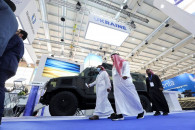
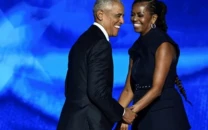
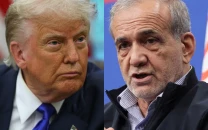
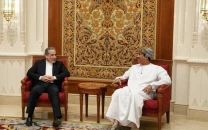

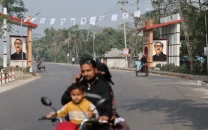












COMMENTS
Comments are moderated and generally will be posted if they are on-topic and not abusive.
For more information, please see our Comments FAQ